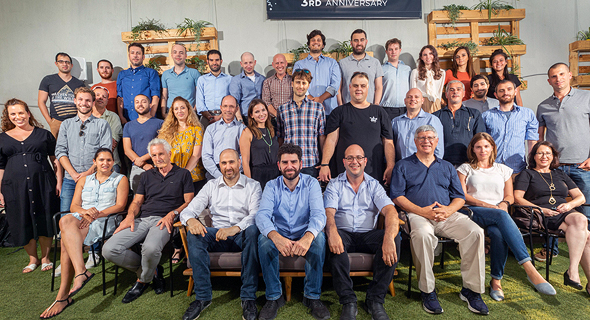Israel’s QEDIT awarded $2 million funding in DARPA cryptography research program
The research project is geared towards harnessing advanced cryptography to preserve the integrity of complex software programs
18:4315.09.20
Israeli privacy-enhancing technology provider QEDIT announced on Tuesday its participation in a $12.6 million project funded by DARPA, the U.S. Defense Advanced Research Projects Agency. The research project is geared towards harnessing advanced cryptography to preserve the integrity of complex software programs.
 The QEDIT team. Photo: Ronen Goldman
The QEDIT team. Photo: Ronen Goldman
The contract for Project Fromager was awarded to R&D specialist firm Galois, with QEDIT receiving $2 million of the funding allocation. Project Fromager is one of 12 projects being funded in conjunction with DARPA’s Securing Information for Encrypted Verification and Evaluation (SIEVE) program, which aims to use Zero-Knowledge Proofs (ZKPs) to enable the verification of capabilities relevant to the U.S. Department of Defense without revealing the sensitive details associated with those capabilities.
 The QEDIT team. Photo: Ronen Goldman
The QEDIT team. Photo: Ronen Goldman Project Fromager is expected to run through to 2024, and aims to use ZKPs to swiftly test the integrity of complex software programs to ensure that the code has not been compromised. It will be spearheaded by Galois, and will also leverage the academic resources of Denmark’s Aarhus University, New York’s Columbia University, and Belgium's Ku Leuven University.
“We at Galois are constantly striving to close the gap between research and real-world deployment," said Alex Malozemoff, Principal Researcher at Galois. "The current state of Zero-Knowledge Proof technology is right at this point. While Zero-Knowledge Proofs have seen wide deployment in cryptocurrencies, more general approaches are just now beginning to be seen as viable in commercial and governmental settings. We are excited to team up with QEDIT: their industry experience, alongside being leaders in the standardization effort around zero-knowledge, is invaluable to the maturation of these technologies.”



